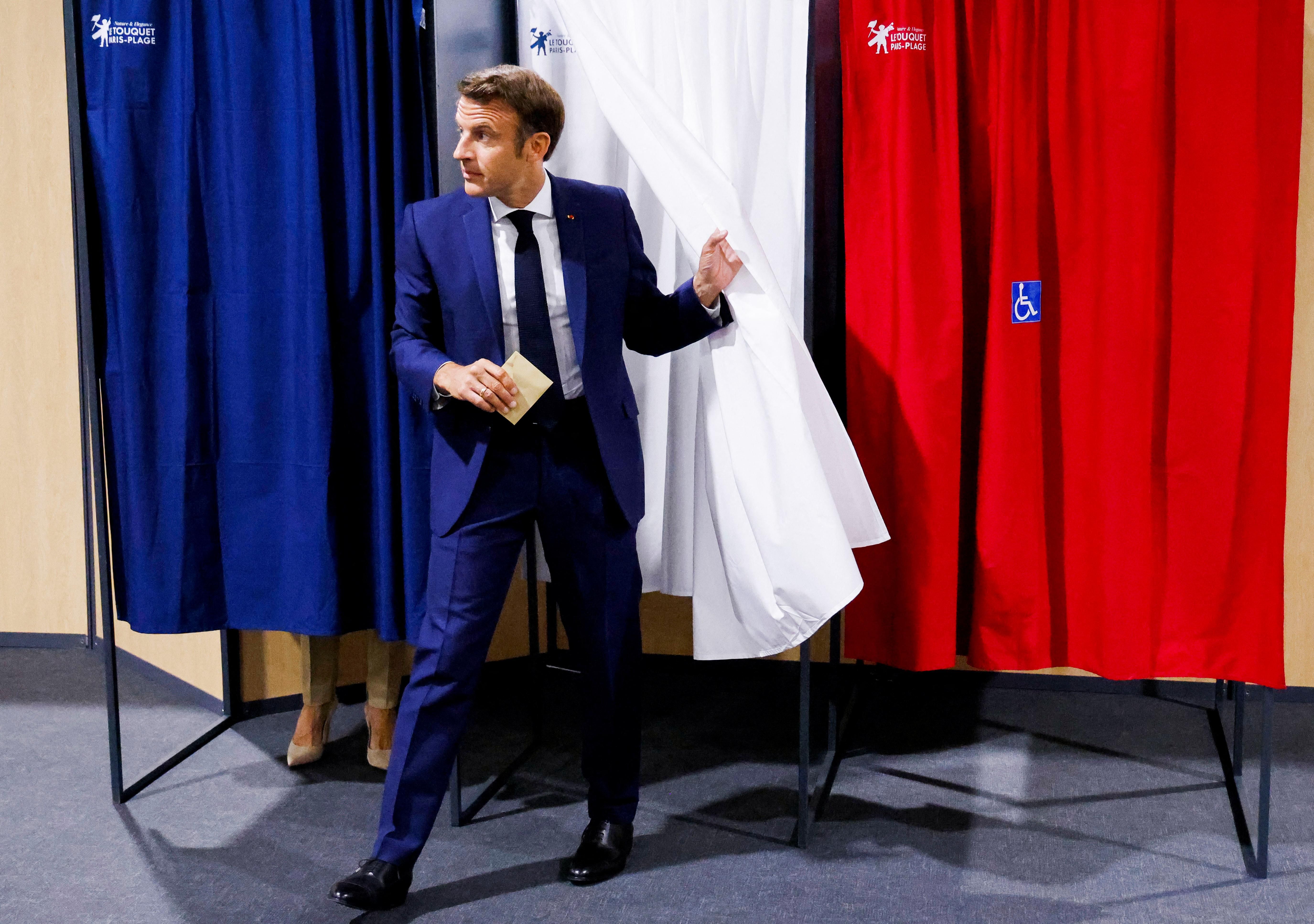What We're Watching: France's final round, ISIS leaders caught
Voters decide Macron’s future
On Sunday, France’s election season comes to a close with the final round of parliamentary elections. The big question: Can President Macron’s Ensemble! Party win a majority of the National Assembly’s 577 seats? If so, or if it gets close enough that a few willing partners from other parties can lend votes on individual pieces of legislation, then he’ll have a chance to advance his ambitious reform agenda. If not, his second-term plans will quickly stall. Macron’s best hope is that a few right-wing voters fearful of potential victory for Jean-Luc Mélenchon’s leftist coalition will limit the number of seats it’s able to win, and that a few leftist voters who adamantly oppose far-right opposition leader Marine Le Pen will back Macron’s centrists for control of seats since there’s no left-wing candidate. Macron has long pledged to boost the government’s financial health by pushing the standard retirement age from 62 to 65. But without at least a near-majority, Macron and his prime minister will struggle even to pass basic reforms meant to cut government spending and help businesses weather tough economic times.ISIS leaders captured, but threat grows in Africa
We don’t hear as much these days about ISIS in Syria, where the jihadist group’s clout and territory have significantly diminished since 2019. But the militant group continues to recruit new personnel in the Levant. That’s why the Pentagon continues to keep track of the group’s movements there. On Thursday, U.S. Central Command reported that it had captured Hani Ahmed al-Kurdi – a top ISIS leader and “experienced bomb maker and facilitator” — who was planning ISIS attacks. The US operation – which took place in northwestern Syria close to where former ISIS leader Abu Bakr al-Baghdadi died amid a daring raid by US special forces in 2019 – was a risky move for the Pentagon because it took place far away from US military bases in the country’s east. While ISIS has been somewhat dormant in Syria, its ISIS affiliates in Africa are grabbing the attention of counterterrorism experts, having gained momentum in nearly a dozen countries on the continent, including Libya, Mali, Mozambique, Nigeria, and Cameroon. France, which reportedly also captured a senior ISIS militant in Mali in recent days, is set to pull out of the west African nation at a time when Islamist violence is on the rise in Sub-Saharan Africa. The region was reportedly home to half of the ISIS-related deaths worldwide in 2021. France’s counterterrorism efforts, meanwhile, continue in the Sahel, where it “neutralized” 40 militants in Niger on Thursday.
This comes to you from the Signal newsletter team of GZERO Media. Subscribe for your free daily Signal today.
